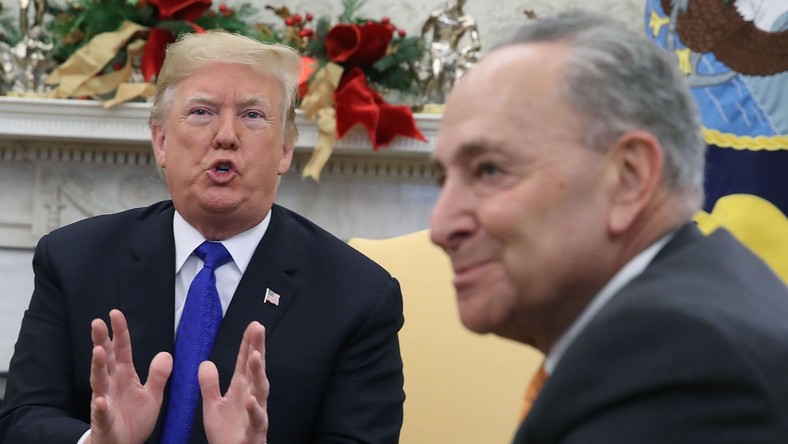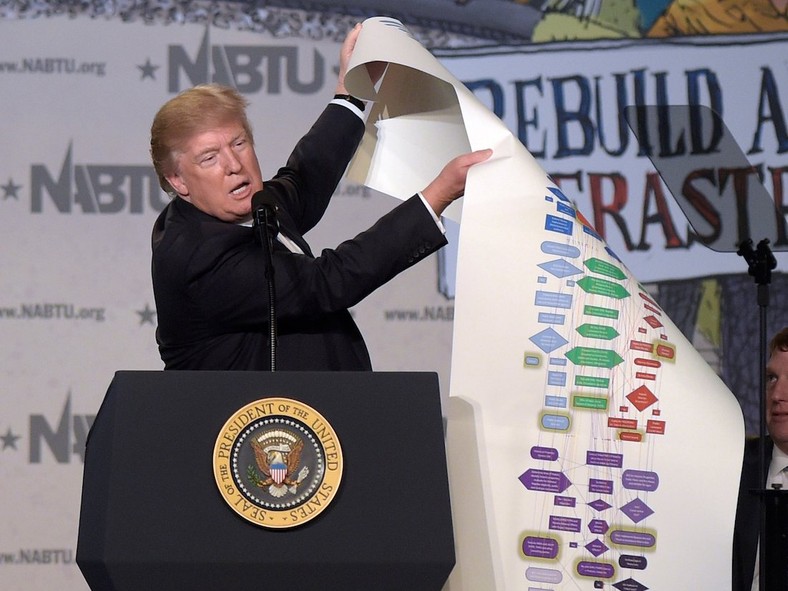World Heritage sites could be transformed by global warming, finds study
Democrats, including House
Speaker Nancy Pelosi and Senate Minority Leader Chuck Schumer, met with
President Donald Trump on Tuesday to discuss an infrastructure plan.


- Schumer said the two sides had agreed to craft a $2 trillion infrastructure package to fix roads, expand broadband access to rural communities, and more.
- But Schumer also said the two sides did not flesh out how the package would be paid for, instead agreeing to come back together in three weeks and discuss funding.
- Democrats and the GOP have very different views on how to pay for infrastructure, which could cause any bipartisan deal to stumble
Democratic congressional leaders Chuck Schumer
and Nancy Pelosi agreed with President Donald Trump on Tuesday to the
outline of a massive investment in America's infrastructure, but what
was left undecided likely dooms the ambitious piece of bipartisanship.
In a press conference outside the White House
following the meeting with Trump, Schumer told reporters that the two
sides had agreed in principle on a $2 trillion infrastructure package to
repair roads and bridges, expand broadband internet access to rural
Americans, and more.
"We agreed on a number, which was very, very,
good, $2 trillion for infrastructure," Schumer said.
"Originally, we had
started a little lower and even the President was eager to push it up
to $2 trillion."
But the rare moment of bipartisan consensus
also comes with a major catch: the two sides did not agree on how to pay
for the plan and instead decided to meet again in three weeks to
address the critical issue.
This leaves the biggest issue and a massive potential roadblock to a deal undecided.
Democrats, GOP don't agree on how to fund infrastructure
If the infrastructure issue and Trump's desire
for a massive investment sound familiar, that's because they are. Trump
has pitched an expansive infrastructure bill since his candidacy in
2016 and rolled out a massive proposal in January 2018 to fund
improvements.
But despite agreement from Democrats that such an investment would be beneficial to the country, none of the ideas have ever gotten off the ground . The major sticking point that has doomed any effort on the infrastructure front has always been how to pay for the improvements.
Democrats staunchly believe
that investment should be funded primarily through public expenditures,
meaning the government should put up the money to pay for the fixes.
By contrast, Republicans and Trump's previous plans
have all called for a small amount of seed capital from the government
that would incentivize private companies to make the rest of the
investment.
For instance, Trump's $1.5 trillion infrastructure plan
released in 2018 called for just $200 billion in government funds to be
put toward improvements and another $1.3 trillion in money, mainly
through partnerships with private firms. In turn, the plan wanted all
projects to generate revenue and generally be managed by private firms.
Democrats, including Schumer, contend that
infrastructure investment should be done primarily with public funds and
have suggested that the plan could offset some of its costs through a rollback of parts of the GOP tax law , which was a major legislative victory for Trump and probably untouchable for the president.
There are, of course, a slew of other reasons
that Democrats and Trump won't be able to get an ambitious
infrastructure plan to the finish line. But a hang-up over funding could
be the biggest divide for the GOP and Democrats to cross.
However, there there may be a way forward.
According to Axios
, Trump despised the 2018 infrastructure plan and has told advisers
that private-public partnerships don't work. The president actually
wants to sink public funds into the infrastructure idea.
That would draw the ire of members of Trump's
own party, especially those who say they are concerned about the
increasing federal deficit. So even if Democrats are able to get Trump
on their side, the GOP-controlled Senate would become an issue.
Comments
Post a Comment